“The DiN ambient label was set up by Ian Boddy in 1999 to release ambient electronica that bridged the gap between the analogue sound of the early 70’s synth pioneers and the digital soundscapes of the more experimental modern exponents of electronic music.” Now celebrating their 25th Anniversary with a colossal 20 track compilation (CD/Digital), Ian Boddy discusses the label and its history with Philippe Blache.
An eclectic mix of musicians keeps the label fresh
After historical years of sparkling seances of long-form meditation in analog moods, Ian Boddy founded the indie and challenging electronic music label DiN in the late 90s; providing a new home for deep/liminal space sound artists and innovative musicians in atmospheric journeying cinematic experiences.

Philippe Blache :: What leading motifs guided you to create your own label back in time? Can you tell us more about the sound artists who joined you and who have durably collaborated under the DiN musical banner?
Ian Boddy :: I had been releasing various albums on cassette, CD & Vinyl since 1980 either on small indie labels or via my own efforts but I really wanted a more focused approach to my musical output. I was certainly influenced by the way the FAX label had been running during the 90’s and although I had a somewhat different musical heritage I felt this sort of label would be what I would like to create. I wanted to be able to combine the Berlin School inspired music from which I had evolved with modern electronic music techniques as well as work with other musicians to go beyond the barriers of what had done before.
The initial three releases in 1999 which came out simultaneously were my solo album Box of Secrets (DiN1), Distant Rituals (DiN2), my first of many collaborations with German touch guitarist Markus Reuter and Strange Geographie (DiN3) by the duo Protogonos. You really couldn’t have three more different albums and this I think set the template for how DiN would evolve.
As the label grew I constantly expanded the roster of electronic music artists, many of them who I knew personally, such as Chris Carter, Robert Rich, Mark Shreeve (as ARC), Erik Wøllo, Node, Nigel Mullaney etc. And in recent years I have been inviting some of the new generation of modular musicians such as Polypores and Field Lines Cartographer to the label.
Such an eclectic mix of musicians keeps the label fresh whilst at the same time I curate it in such a way as to guarantee the musical quality and artistic integrity of the label.
As a collective of musicians and sound artists, have you ever conceived any DiN music festival? If yes how and when did it take place?
Ian Boddy :: Although I’ve played with many of the artists in a live setting there has never been a DiN music festival as such. With the artists spread all over the world the finances to set up such an event are prohibitive. Having said that the Tone Science sub-label, which focuses in on the modular synth world and currently has nine releases had a lovely event in the spring of 2023. This was the Tone Science Live concert which has been released as the eighth in that series and featured five musicians from previous Tone Science albums. We all played separate sets and then all performed together for a last piece playing a wonderful drone composition based on one of La Monte Youngs works.
When I’m thinking of electronic gears and the importance took by innovative engineers as Don Buchla for the modular synthesizer and Bob Moog (among others), what those figures represent for you and how do you conciliate the use of vintage sound equipment with new approaches in digital music? What are your thoughts about sample based synths and their use in modern days sound design? With personal creativity and without a heavy or solid theoretical-technical background it seems that the distinctive line between professional and amateur musicianship becomes thinner, is it an observation you agree with?
Ian Boddy :: For me all these various tools, whether they be hardware or software are instruments. The focus always has to be on producing music never about fetishizing the gear for its own sake. This latter outlook is one a lot of folk fall into, especially in the modular world and for me this is a cul-de-sac that doesn’t go anywhere. No matter how cool the kit is it’s there to serve you as the composer for you to express yourself. So I never get into the debate of whether analogue or digital is better – use whatever you want to achieve your musical goals. Having said that because of my background starting out in electronic music way back in 1978 I have a preference for using analogue hardware, especially vintage modular gear. But that’s just my choice and I’m quite happy to use digital software synths or samplers if that’s what I need to serve the composition.
“Ambient music in its purest forms, can take you away from your everyday existence—and if you listen in to its sound worlds, it can open up new experiences. Not everyone is willing or able to do this but if you put in that effort the rewards are beautiful.” ~Ian Boddy
As for the line between professional or amateur musicianship I’m not sure if it even matters. Sure to be able to play a traditional instrument such as a piano or guitar with a level of skill that can be classed professional then you need to put in a lot of time and practice. But I don’t see that as any different from the many hours someone needs to devote to truly learning how to play a modular system. Such an instrument is not about traditional musical keyboard skills but rather understanding how that instrument works so you can get out of it what you want to support your creative vision.
Do you have any interest in tape music, and in early electro-acoustic researches/technics and compositional paradigms as developed by Cage, Varèse or artisans and technicians who belonged to the Zodiac Free art labs, Sonic Arts Union, San Francisco Tape music center or the GRM? Can you consider any possible dialogue between those hermetic schools in avant-gardism and the more pop-orientated facet of ambient music as popularized by Cluster, Harmonia, Eno, Gavin Bryars, David Toop?
Ian Boddy :: Yes of course I’m very familiar with all those artists and in my early days at Spectro Arts Workshop in the late 70s I used to do a lot of tape manipulation techniques such as loops and delays. Certainly modern technological advances made many of these methods seemingly obsolete yet they had a certain sonic charm that modern digital methods don’t seem to quite reproduce. All of these artists are fundamentally interested in working with sound itself as a raw ingredient which can be moulded into musical forms and tape techniques where, whilst slow and laborious, a beautiful technique. One of my recent acquisitions in my studio is a reconditioned old Revox which I want to incorporate into my workflow to give me access to those old techniques. It should be a lot of fun.
Without going too much into a psychology or a phenomenology of musical experience, what do you think of the role of music and in particular of the aesthetic of ambient music in education, in soul’s habits?
Ian Boddy :: Ambient music has neither more or less value in the human psyche than any other genre. Music is such a subjective, abstract art form that everyone has their own personal musical tastes. That said, ambient music in its purest forms, can take you away from your everyday existence—and if you listen in to its sound worlds, it can open up new experiences. Not everyone is willing or able to do this but if you put in that effort the rewards are beautiful.
What are your upcoming musical projects and with which artists would you like to collaborate?
Ian Boddy :: I’ve been concentrating a lot recently on the release of 25 Years of DiN (DiN86) which is a very important release celebrating the 25th anniversary of the label. No more concerts are planned right now as I have several other projects in the pipeline including the next DiN release which is a recording from the concert I played with Dave Bessell last November at the Awakenings. Beyond that I just want to keep the DiN label going as long as I can and to maintain its quality of output.
25 Years of DiN is available on DiN. [Bandcamp]






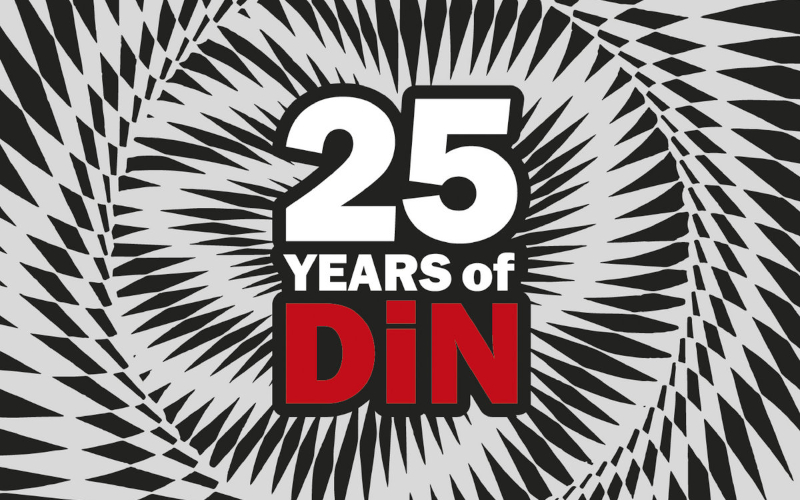
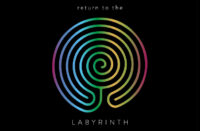


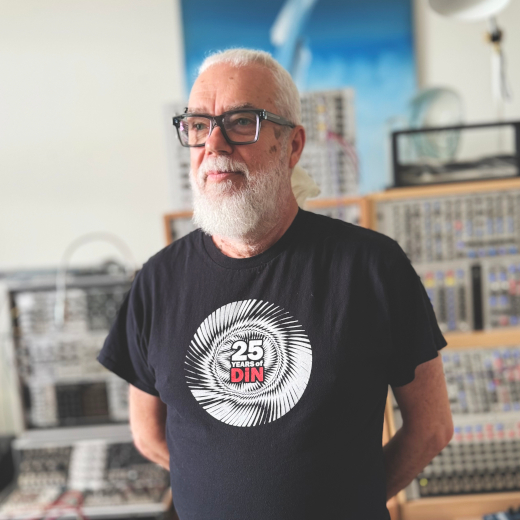

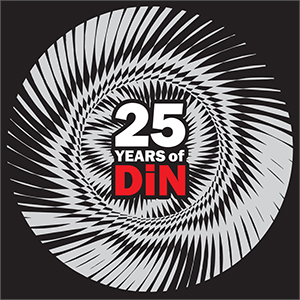
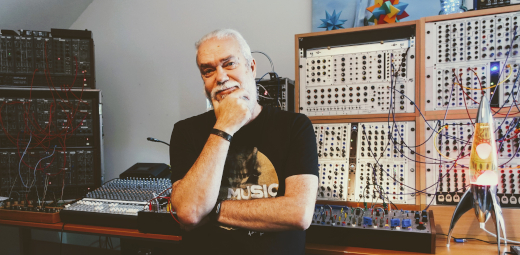

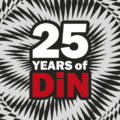

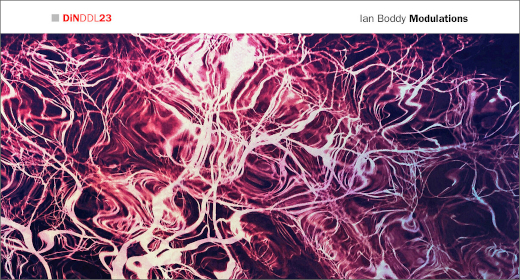
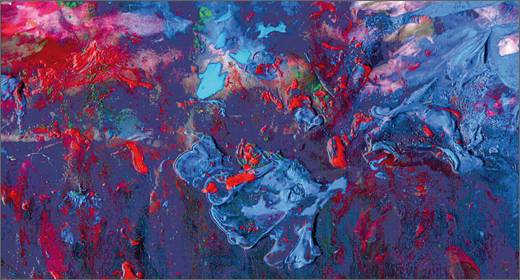
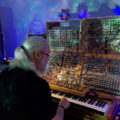

![Pole :: Tempus Remixes (Mute) — [concise]](https://igloomag.com/wp/wp-content/uploads/2025/04/pole-tempus-remixes_feat-75x75.jpg)






![Hasbeen :: Bunker Symphonies II (Clean Error) — [concise]](https://igloomag.com/wp/wp-content/uploads/2025/04/hasbeen-bunker-symphonies-ii_feat-75x75.jpg)

